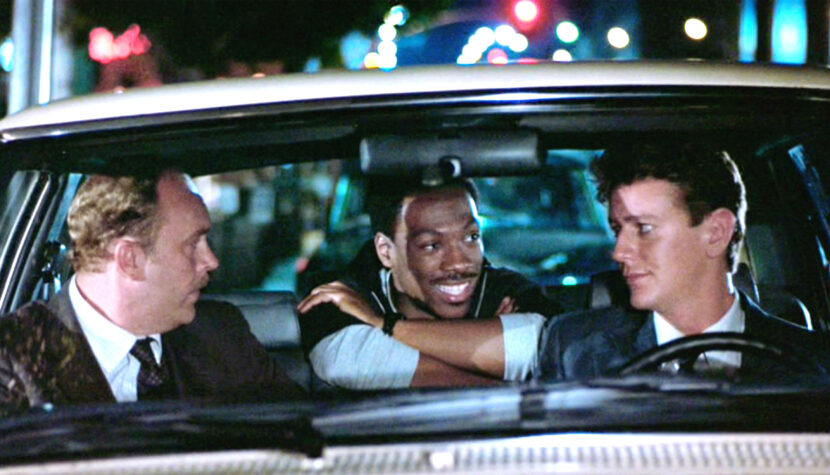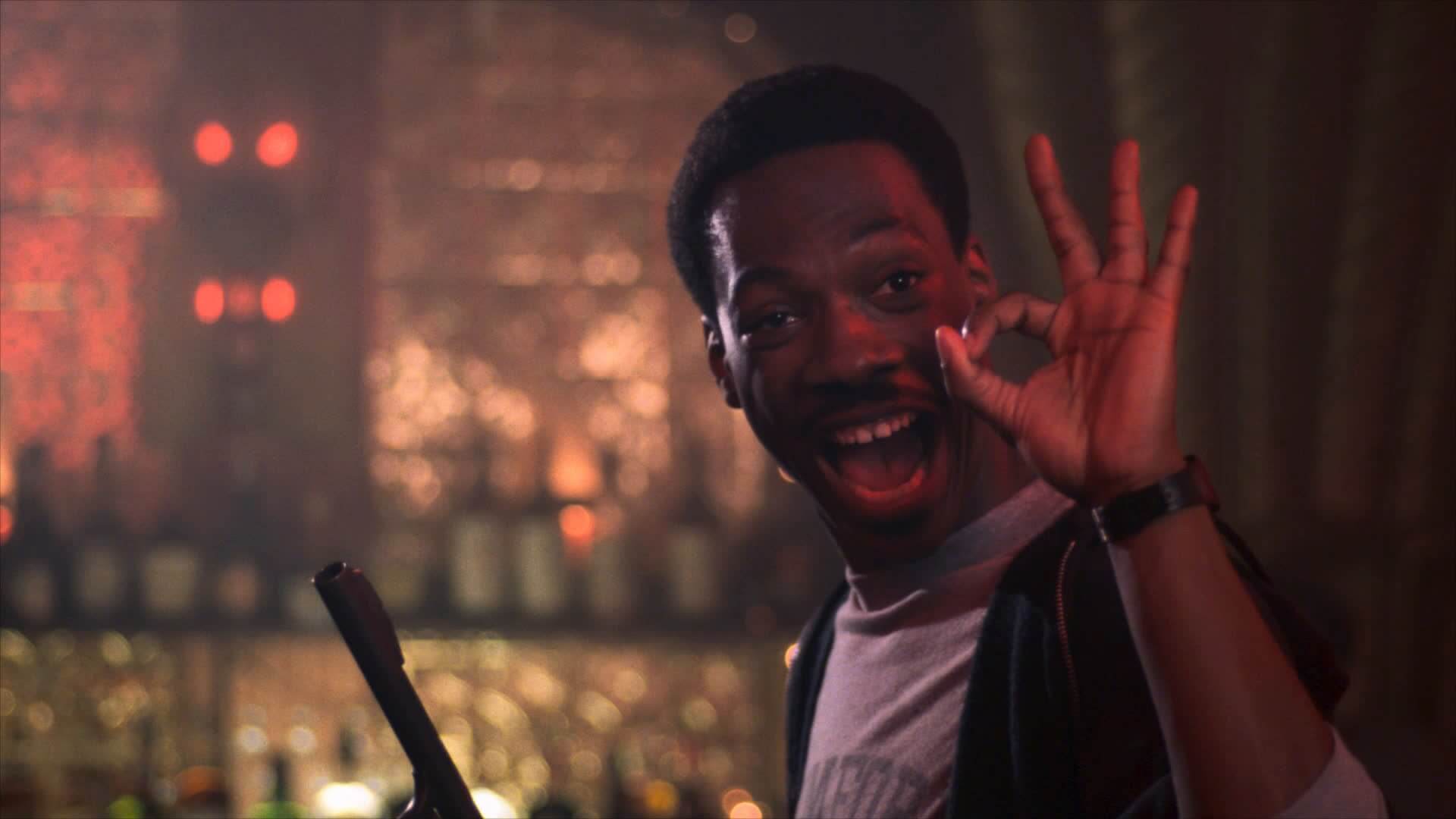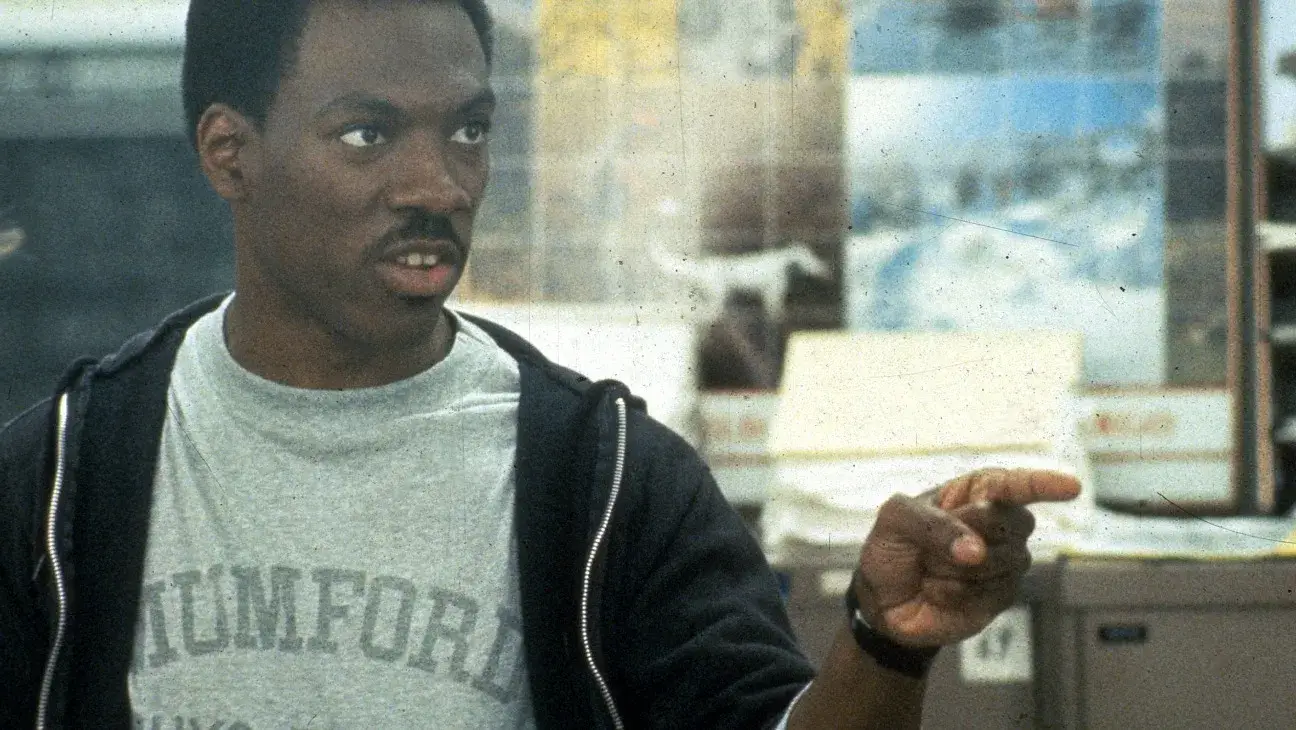BEVERLY HILLS COP: A Timeless Classic Perfectly Capturing the 1980s

In the 1980s, one of my favorite genres, the action-comedy, enjoyed great success. This year marks the fortieth anniversary of one of the finest examples of this genre – “Beverly Hills Cop,” which launched Eddie Murphy into stardom. Axel Foley remains the actor’s best role to this day (yes, even better than Donkey from Shrek), and in just under three weeks, Foley will return in the fourth installment of the series. But let’s start from the beginning.
The script for the film, originally titled “Beverly Drive,” was written in the late 1970s and told the story of a cop transferred from an “ordinary” Los Angeles neighborhood to the elite Beverly Hills, where his unconventional methods astonish the polished officers of this exclusive area of the City of Angels. Al Pacino, Clint Eastwood, and James Caan were considered for the lead role, though offers were never made (unlike Harrison Ford, who was offered the role but declined). When the decision to produce was made, the producers (Jerry Bruckheimer and Don Simpson) immediately wanted to hire Eddie Murphy, but ultimately Sylvester Stallone was cast. Stallone rewrote the script, heavily shifting its tone towards action at the expense of humor. He also changed the protagonist’s last name from Elly Axel to Axel Cobretti. These changes would have increased production costs astronomically, so Stallone was let go (he later used his ideas for “Cobra”), and Murphy was brought back. The character’s name was changed again, this time to Axel Foley. The only thing left was to convince Martin Brest to direct. He resisted for a long time but finally agreed after being persuaded by the producers and a coin toss. Brest still has the coin framed.

Everyone likely knows the plot, but for the sake of completeness: Outspoken Detroit cop Axel Foley (Murphy), while trying to solve the mystery of a friend’s death, follows the trail of the murderers to Beverly Hills. There, with the help of his friend Jenny (Lisa Eilbacher), he uncovers a larger conspiracy involving a distinguished art dealer (Hollywood’s go-to bad guy, Steven Berkoff). Foley sets out to administer justice, using unorthodox methods that initially irk the Beverly Hills police officers.
When the film hit theaters in December, it was a sensation. Everything about it clicked: the fantastic main character who, with his unconventional methods, causes a stir in the prestigious LA district (and guarantees viewers a great time), supported by an excellently cast ensemble – from the amazing chemistry between Rosewood (Judge Reinhold) and Taggart (John Ashton), the police chiefs Bogomil (Ronny Cox) and Todd (non-actor Gilbert Hill), the villains, to the tertiary characters. Who doesn’t smile at the scene with Serge (Bronson Pinchot)? The camera focuses on Murphy, who, at just twenty-three years old, carries the film on his shoulders. His expressive personality, distinctive laugh, and improvisational skills make “Beverly Hills Cop” enjoyable even four decades later. Iconic scenes – the first visit to the art gallery, the banana in the tailpipe, the strip club sequence, or the visit to the elite club – are endlessly watchable. Phenomenal moments include when Axel cleverly sneaks into secure places, such as a customs warehouse or getting a room in a crowded, upscale hotel.
Additionally, if I had to pick a film that perfectly captures the 1980s, “Beverly Hills Cop” would top the list. Everything in it screams the decade it was made, especially the music. The wonderful theme song composed by Harold Faltermeyer sounds great and is still enjoyable (which I’m listening to as I write this review). Besides that, there are quite a few hit songs, such as “The Heat Is On” by Glenn Frey and “Stir It Up” by Patti LaBelle.

It’s also worth noting that the film breaks genre conventions as the main character does not have an on-screen romantic partner. There’s Jenny, but she and Axel are just friends. Interestingly, in Stallone’s version, the actress had a typical female role for action films of that period. Thankfully, this was changed (at least to some extent, as the characters still have to rescue her in the end).
Of course, you could nitpick, like the fact that the protagonist has little to do in the (otherwise spectacular) prologue or that some moments require suspension of disbelief, but why look for flaws when you can simply enjoy Foley and company’s adventures?
There’s no need to say more. “Beverly Hills Cop” is a timeless classic, and I enjoy revisiting it every so often. I’m sure I’ll watch it many more times in the future.
Written by Piotr Zymelka

